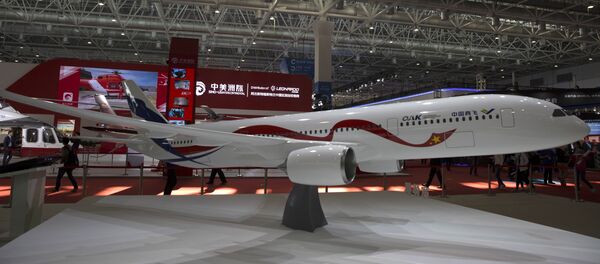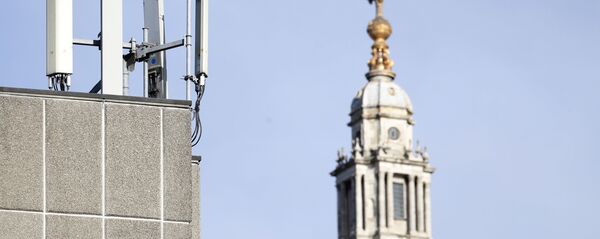Dr Derek Long, head of telecoms and mobile at Cambridge Consultants, discussed the importance of 5G connectivity in the digital ecosystem as well as new developments on the emerging technology. He has worked as an business executive for Ericsson for 12 years and currently heads Telecoms and Mobile in the firm's Wireless and Digital Services Division.
Founded in 1960, Cambridge Consultants is a major contributor to the creation of Silicon Fen, the cluster of high-tech companies in telecommunications, biotech and software, which include firms such as Arm and AstraZeneca, among others.
Sputnik: Can you explain how your consultancy communicates the value of 5G to its clients?
Dr Derek Long: Cambridge Consultants develops breakthrough products and provides business consultancy in technology-critical issues for clients worldwide. In the realm of 5G, our focus is on the development of high-performance connectivity and services.
We work with operators and businesses around the globe to help them develop the most advanced products for their own operations and also for their customers. We also advise on the best way for our clients to restructure their business processes to make largest gain from this new technology.
Sputnik: Why is 5G such an important emerging technology and who benefits the most from it?

Secondly, it provides a platform for enterprises to shift their internal operations to wireless technology, providing a foundation for greater levels of digital transformation.
Sputnik: Following its Huawei telecoms ban, the UK Government announced it would partner with Japanese firm NEC to develop OpenRAN-based networks. Will OpenRAN be a sufficient replacement for vendor-specific 5G towers, and can they handle the scalability of increasing data flows without sacrificing vital cybersecurity demands?
Dr Derek Long: OpenRAN equipment is on a fast trajectory to catch up with system vendors. However, the ORAN community face challenges, including a lack of end-to-end solutions and dependency on system integrators. There is a risk that this could ultimately lead to a similar situation to today where system vendors are replaced by system integrators.

Sputnik: A World Economic Forum report on the Industrial Internet-of-Things (IoT) found that interoperability in networks "operated in silos", leading to severe issues in network cross-compatibility. What are your viewpoints on current levels of network interoperability at the consumer, enterprise and industrial levels? How can telecoms facilitate this interoperability?
Dr Derek Long: The World Economic Forum report talks about interoperability between Industrial IoT ecosystems. Vendors of technologies in many sectors create superior solutions by integrating their products into their own operating systems.
This brings benefits for the customer in that all the devices are compatible, easier to integrate and even provide additional functionality. The downside is that these closed ecosystems make a customer dependent on that vendor and disadvantages competing vendors who may have more innovative solutions. This situation is found in many areas.
Sputnik: Your consultancy discussed the future of airborne telecommunications infrastructure. How does this differ from traditional satellite communications for telecoms and who would be the primary end-user of such technology? Will it revolutionise existing 5G tech and how so?
Dr Derek Long: When cellular technology was first conceived in the 1970s, there was no alternative to cell towers. Now, however, the technology exists to provide cellular connectivity from airborne platforms.
The primary users of the technology will be IoT devices and also smartphone users. A good example is a recent project we have just announced in collaboration with Stratospheric Platforms Limited (SPL) to beam high performance 5G from the stratosphere at a fraction of the cost of terrestrial networks.”
Sputnik: Would you like to add anything else?
Dr Derek Long: As has been illustrated by the Coronavirus pandemic, the telecommunications industry has a fundamental position in our lives, providing us with connectivity to others, services, information and entertainment. It has created a huge level of innovation and with the advent of 5G, the rate of innovation is accelerating considerably.
At Cambridge Consultants, we are at the forefront of innovation across many areas, including non-terrestrial networks, advanced antenna systems, high performance networking, data analytics and digital services. Our clients look to us to provide them with the latest innovations and to help them exploit their investments to the maximum extent possible.



